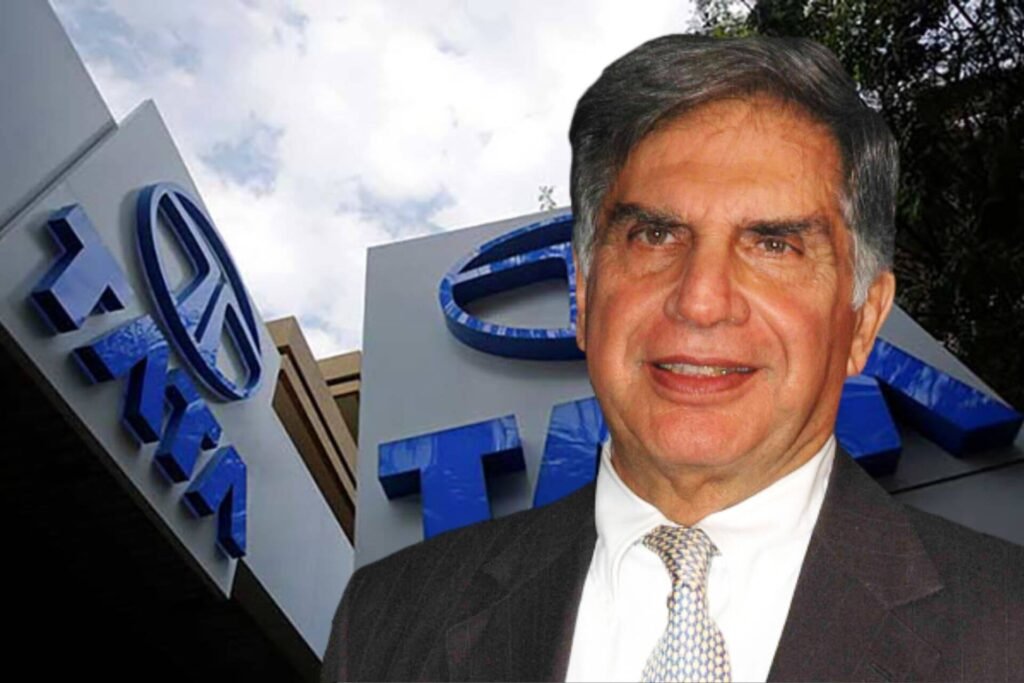
The Inspiring Journey of Ratan Tata: A Legacy of Leadership and Vision
Ratan Tata, the name synonymous with trust, integrity, and visionary leadership, is an icon in the business world. From transforming the Tata Group into a global powerhouse to inspiring millions with his philanthropic endeavors, Ratan Tata’s journey is a remarkable testament to perseverance, humility, and bold decision-making. Let’s take a closer look at the journey of one of India’s most respected industrialists.
Early Life and Education
Ratan Tata was born on December 28, 1937, into the prestigious Tata family, known for their legacy of industrial leadership and philanthropy. However, despite being born into affluence, Ratan Tata’s early life wasn’t without its challenges. His parents separated when he was just 10, and he was raised by his grandmother, Lady Navajbai Tata, who played a pivotal role in shaping his values of empathy, compassion, and resilience.
He completed his early education in Mumbai before attending the prestigious Cornell University in the United States, where he earned a degree in architecture. Later, he pursued a management program at Harvard Business School, which broadened his business acumen and leadership insights.
The Early Days at Tata Group
Ratan Tata’s entry into the family business wasn’t an automatic rise to the top. In 1962, he joined the Tata Group, starting as a blue-collar worker in Tata Steel’s Jamshedpur plant, where he shoveled limestone and handled the blast furnace. This early experience gave him a profound understanding of the grassroots operations of the company and the challenges faced by workers on the ground.
In the 1970s and 1980s, Ratan Tata took on various roles within the Tata Group’s multiple companies. His leadership began to emerge during this period, but he faced skepticism and resistance from some quarters within the conglomerate, especially due to his relatively young age and unconventional ideas.
Taking the Helm of Tata Group
In 1991, Ratan Tata succeeded J.R.D. Tata as the chairman of Tata Sons. At that time, the group was a sprawling entity with several independently operating companies, often with little synergy or coordination. Ratan Tata’s first challenge was to streamline and modernize the conglomerate’s operations, bringing all the diverse businesses under a cohesive strategic vision.
Transforming Tata into a Global Brand
One of the most striking aspects of Ratan Tata’s leadership was his ambition to transform Tata Group into a global brand. He spearheaded several high-profile acquisitions that elevated the Tata Group’s presence on the world stage:
- Tata Tea’s acquisition of Tetley (2000): This move made Tata Tea the second-largest tea company globally and was a significant step in Ratan Tata’s global vision.
- Tata Motors’ acquisition of Jaguar Land Rover (2008): Amid skepticism from several quarters, this acquisition turned out to be a masterstroke, with Tata Motors reviving both brands and achieving tremendous success in the global luxury car market.
- Tata Steel’s acquisition of Corus (2007): This move catapulted Tata Steel into the ranks of the world’s top steel producers, underscoring Ratan Tata’s strategy of growth through bold acquisitions.
Under his leadership, Tata Group’s revenues grew over 40 times, with a significant portion of earnings coming from global markets. His emphasis on innovation, quality, and sustainable growth ensured that Tata Group stayed ahead of the competition, both domestically and internationally.
A People-Centric Leader
Despite his towering success, Ratan Tata is often described as one of the most humble and people-centric leaders. His decision to build the Tata Nano, the world’s cheapest car, was driven by a desire to provide an affordable transportation option for middle-class Indian families. Though the project faced numerous challenges, the intent behind it was applauded globally, reflecting his deep understanding of the Indian consumer’s needs.
Ratan Tata’s empathy for people was also evident in his handling of the 2008 Mumbai terrorist attacks at the Taj Mahal Palace Hotel, owned by the Tata Group. He was deeply involved in the relief efforts for the victims, and the Tata Group provided extensive support to those affected, earning widespread admiration for their humanitarian efforts.
The Power of Philanthropy
Ratan Tata’s legacy goes beyond business. He has been a steadfast believer in giving back to society. Over 65% of Tata Sons is owned by charitable trusts, reflecting the Tata family’s commitment to philanthropy. Ratan Tata has made significant contributions to education, healthcare, and rural development in India. His efforts to drive social change, from setting up hospitals and schools to funding research and technological innovations, are unmatched.
In recent years, Ratan Tata’s philanthropic focus has also expanded to include technology-driven social change. He has invested in numerous startups that aim to solve pressing problems in healthcare, sustainability, and infrastructure.
Legacy and Retirement
Ratan Tata stepped down as chairman of Tata Sons in 2012, leaving behind an indelible mark on the global business landscape. Though retired, he remains actively involved as a mentor and advisor, especially to young entrepreneurs and startups in India.
His leadership style, often characterized by integrity, visionary thinking, and a focus on human values, continues to inspire countless business leaders and professionals worldwide. Even in retirement, he has shown a keen interest in the Indian startup ecosystem, investing in and mentoring budding entrepreneurs.
Conclusion
Ratan Tata’s journey is not just the story of a successful businessman but of a leader who has touched millions of lives with his wisdom, generosity, and forward-thinking approach. His legacy will endure not just in the business world but also in the hearts of people who admire his principles and vision for a better world. From transforming Tata into a global conglomerate to his unwavering commitment to philanthropy, Ratan Tata’s journey exemplifies that success is not just about profits—it’s about creating lasting, positive change.
Ratan Tata is proof that leadership rooted in compassion, vision, and bold decision-making can leave an indelible mark on the world.
